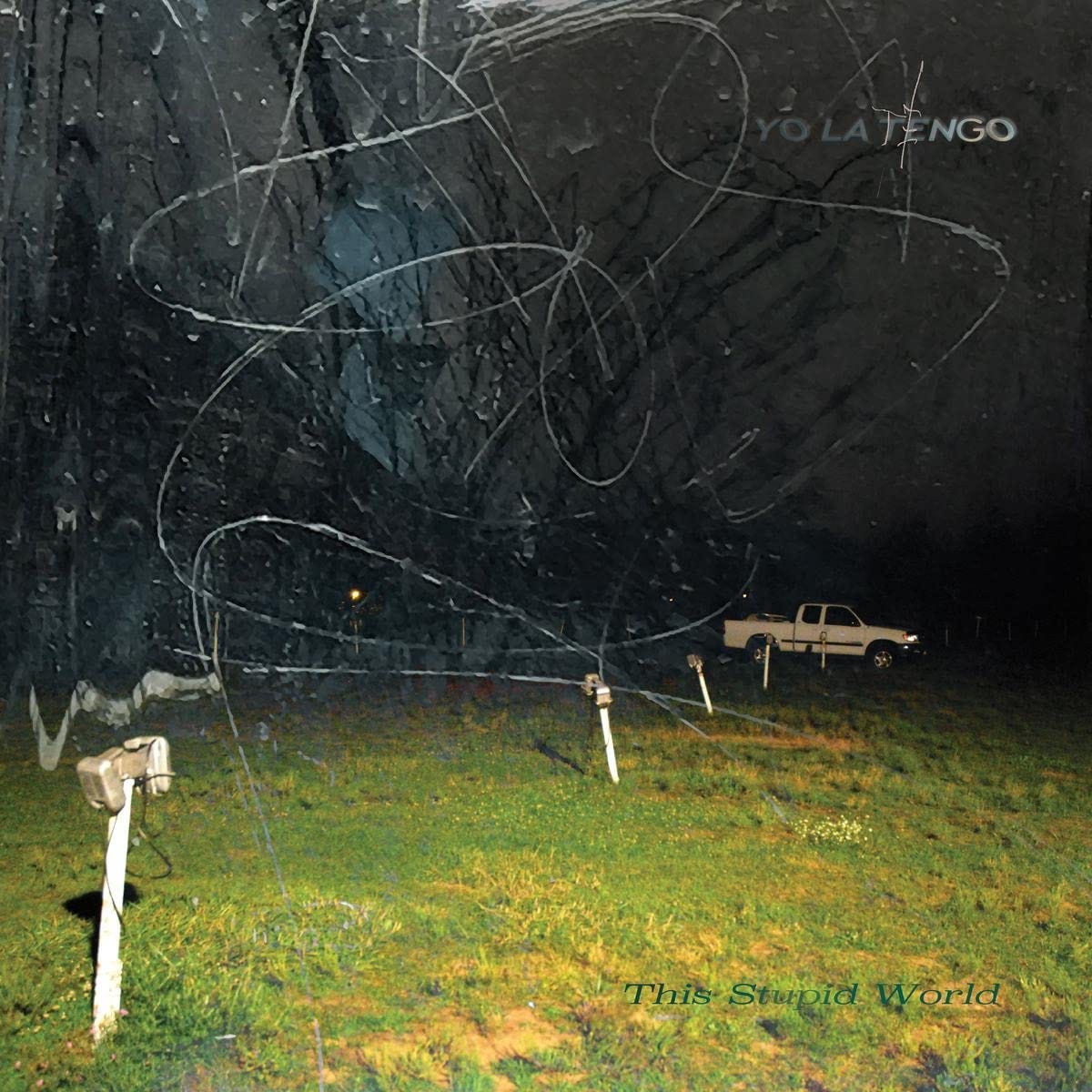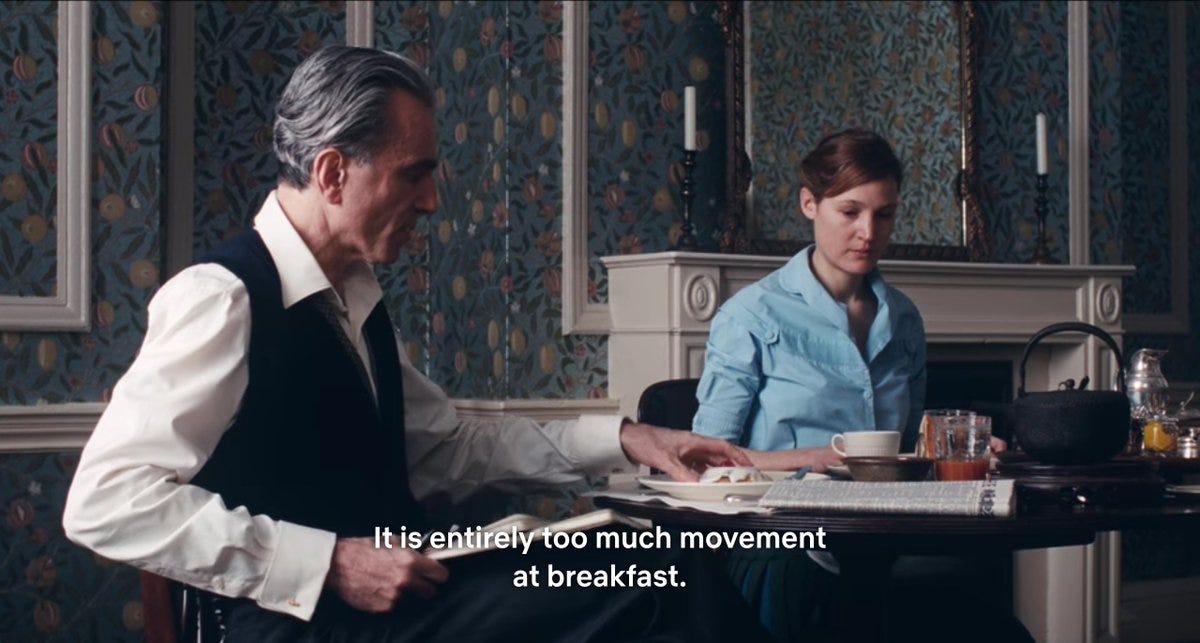You go through phases with Yo La Tengo. You’re old enough now to reflect on these discrete periods, the way the music has or hasn’t rhymed with the currents of your life.
There was the Painful era, 2009ish, when you weren’t yet 18. The first Yo La Tengo record you listened to, on the recommendation of some ancient Pitchfork list. You loved “Sudden Organ” for its honesty: it began suddenly, with an organ. It didn’t need to be more complicated than that.
There was the I Can Hear The Heart era, around 2011. You played it endlessly at your first job, in the backstock room of the American Apparel on Pacific Coast Highway. “Autumn Sweater” and “Deeper Into Movies” were revelations, but it was “Green Arrow” that really did it for you, the immense well of feeling conjured by a weeping guitar and toms struck with mallets and crickets, all those goddamn crickets.
There was the And Then Nothing era, 2015-2016, the most profound of them all, the record that ushered you out of your old life and into a new one. But that’s a story for another time.
There was the Electro-O-Pura era, 2017. You listened to “Blue Line Swinger” riding the bus to the bar to watch the Dodgers lose game 7 against the Astros. Hearing it still makes your gut clench, the same way it did watching Yu Darvish melt down in the second inning. It always will.
There was the Summer Sun era just the next year, with a brief sojourn into There’s a Riot. The former was a delightful discovery, low-key and languid, easy to listen to whenever. The latter didn’t quite come through the way you hoped it would. It still hasn’t. One day it might.
Recently you’ve been in the I Am Not Afraid era. “Pass the Hatchet, I Think I’m Goodkind” has been a longtime love (especially the way ends, sound and fury ceding willingly to the brassy bop of “Beanbag Chair”), but the rest of the album is only now coming into focus. The middle of the record—“The Room Got Heavy” into “Sometimes I Don’t Get You” into “Daphnia” into “Sometimes I Don’t Get You”—is as thrilling a run of rock songs as you’ll find, in Yo La Tengo’s catalog or anyone else’s.
And there are still eras to come: those dedicated to “Popular Songs” and “Fade” and “New Wave Hot Dogs,” records you’ve listened to but haven’t yet committed to. This isn’t a band to binge. You don’t mind taking your time. Their discography is long. So too are lives.
But now you’ve entered the This Stupid World era. You know it as soon as you hear the first track, “Sinatra Drive Breakdown.” It’s thick, lumbering, deliberate—more of a slow burn than a blistering brain-melter like “Pass The Hatchet,” but no less heavy. You wonder if the title is a reference to Frank Sinatra Drive, one of the endless east/west roads that runs along Palm Desert’s golf courses and great parcels of nothing. It sounds suited for such an environment: stark, alien, serene.
“Fallout,” the first single, is already an all-timer, one of the great rock songs from one of the great rock song bands. Clearly a Covid tune, it’s delivered with enough distance to grant plausible deniability: “Every day it hurts to look / I’d turn away if only I could / I wanna fall out of time / hold back, unwind.” The title—a sly bit of sleight-of-hand, a non-reference—evokes even greater horrors, visions of nuclear doom that recede as the song winds up and then down, riding Georgia’s doo-wopalyptic backing vocals.
“Tonight’s Episode,” the first James tune, turns into a call-and-response rundown of yo-yo tricks: “Milk the cow / I can milk the cow / Mow the lawn / I can mow the lawn / Steal your face / I can steal your face.” It’s one of the most affecting lyrics you’ve heard in some time. And suddenly you’re up to “Aselestine,” Georgia’s first lead, a warm and relaxed-sounding song seemingly about the death of a friend.
There’s a lot packed into This Stupid World, but the whole thing moves along with an uncharacteristic economy. Nine songs, forty-nine minutes, nothing over the seven-and-a-half minute mark. Yo La Tengo’s Together Through Life: a record you can just put on.
The press package notes that the album was recorded almost entirely live, together, at once. It sounds like it and it feels like it, even on tinny little AirPods. In an age of algorithmic playlists and deepfake voice bots, this kind of commitment to the practice of music-making is uncommon. It reminds you of another favorite, another ageless artist who has devoted himself to the songs and the players and spirit in the room; who has stood athwart history yelling “STOP.”
But these aren’t reactionary impulses. The choice to record live in the room as a band doesn’t serve the power elite. It serves the you the listener, the artists themselves—most importantly, it serves the music. Some things you simply can’t fake, even with a warehouse full of AWS servers.
Yo La Tengo, it strikes you, is like the Swiss watch on your wrist: perfect and predictable and essential, so reliable you never consider the gears whirring beneath the dial, turning the hands forward one second after another after another, forever and ever. They’re somehow both the hardest-working and least-dramatic band going, a distinction made all the more significant by the fact that two of three members have been married to each other for decades. As someone in a loving, lasting partnership—someone who will be married in just a few weeks, whose bride will be walking down the aisle to “You Can Have It All,” the single song at the root of it all, the one that’s been there since the beginning, nearly seven years ago—you know relationships take work to nurture and grow.
Some couples go to therapy to work through their issues; Ira and Georgia work through theirs in the grooves. “Apology Letter,” the sixth track, presents itself as a pseudo-sequel to “The Crying of Lot G,” another examination of the gulf between thought and expression. Above a smooth guitar that seems to quote the first Silversun Pickups record, Ira inventories a series of miscommunications, words that “derail on the way from me to you.” There’s something quietly subversive about it, something vaguely Phantom Thread, the way they work in tandem to make art out of their relationship strife.
“Brain Capers” hits hard. It takes a second getting going, but once it does it goes. Check the lyric sheet—a song this hard must have a heavy subject, right? Wrong: name drops include Alice Cooper, Ray Davies, and Rick Moranis, of Honey I Shrunk The Kids fame. Whatever’s happening here, it’s a delight learning that the brains of the best rockers around are filled with all the same exhausted ephemera yours is. It certainly suits these three, a trio that took its name from a wildly obscure piece of Mets trivia.
The title track ties it all up. Another one from Georgia, miles away from “Aselestine:” mantra-like delivery, a motorik stomp, coiled guitars ringing down the line. Ira seems to come in toward the end—or is it a second track from Georgia?—or was Ira there all along? Lyrics leak out from behind a swelling wall of feedback. There aren’t many, so it doesn’t take long to put them together: “This stupid world, it’s killing me / This stupid world is all we have.” The perfect summary of this era of your life—and of everyone else’s.







